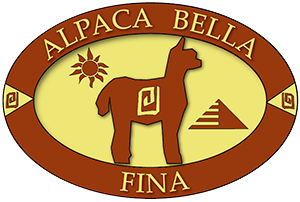- Home
- Alpacas For Sale
- Herd Sires
- Contact Us
- Seasons at Our Farm
- Alpaca Articles
- Financial Aspects of Alpaca Ownership
- Who Buys Alpacas?
- Alpaca Supply & Demand
- Alpaca Values
- Capital Requirements
- Hands-on Alpaca Ownership
- Financial Observations
- Tax Consequences of Owning Alpacas
- Methods of Financing your Alpaca Purchase
- Creating a Herd
- Alpaca Purchase Contracts
- Why Not Have Uncle Sam Help You Buy Your Alpacas?
- Making Sense of Microns
- Ancient History of Alpacas
Hands-on Alpaca Ownership
Hands-On Alpaca Ownership
There are essentially two ways to own alpacas. The first approach is to simply purchase the animals and begin raising them. The second approach is to purchase the animals and place them in the care of an established breeder. This arrangement for care and boarding of an animal on behalf of another is known as agistment. Under this method you, as owner, typically would still make the important decisions about care, breeding, sales, etc.
This discussion will focus on the owner-raised scenario. Many breeders will work with you to develop an analysis designed for your particular situation; however, you are encouraged to independently develop your own financial analysis utilizing professional support if necessary. Expenditure of funds warrants a full assessment of risks. The buyer needs to establish a comfort level that this is the right balance for their lifestyle.
Analyzing the feasibility of alpaca ownership requires making a set of assumptions. Determining the costs associated with raising the animals and how much they might sell for in the future are the basic elements used in projecting a return on the investment. The assumptions found here are estimates based on many breeders’ experiences.
The hands-on method of raising alpacas, as either a part- or full-time business, requires that the alpaca breeder own a small ranch or acreage. The property would need to be properly fenced and have a small barn or shelter. Many new owners already have outbuildings suitable for alpacas. The alpaca owner is presumed to supply the day-to-day labor.
Many new buyers start with a breeding pair or two females (and purchase stud services). The financial returns are similar at different ownership levels, so don’t feel that you have to be a large ranch to participate.
